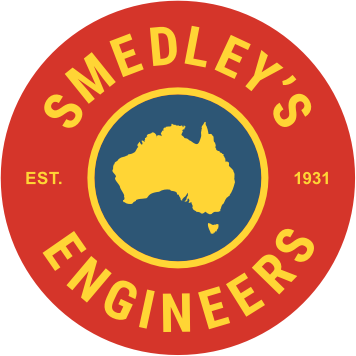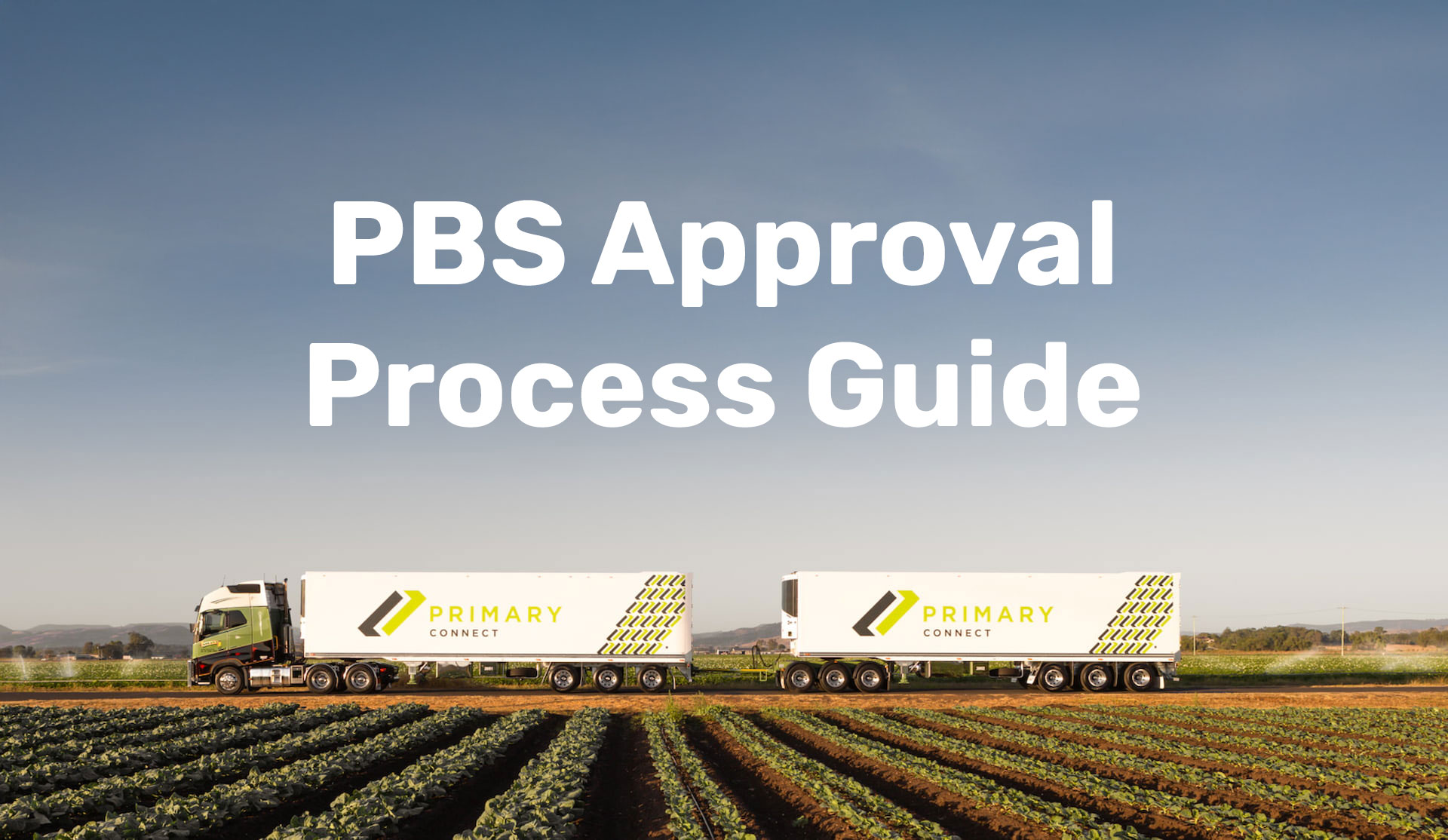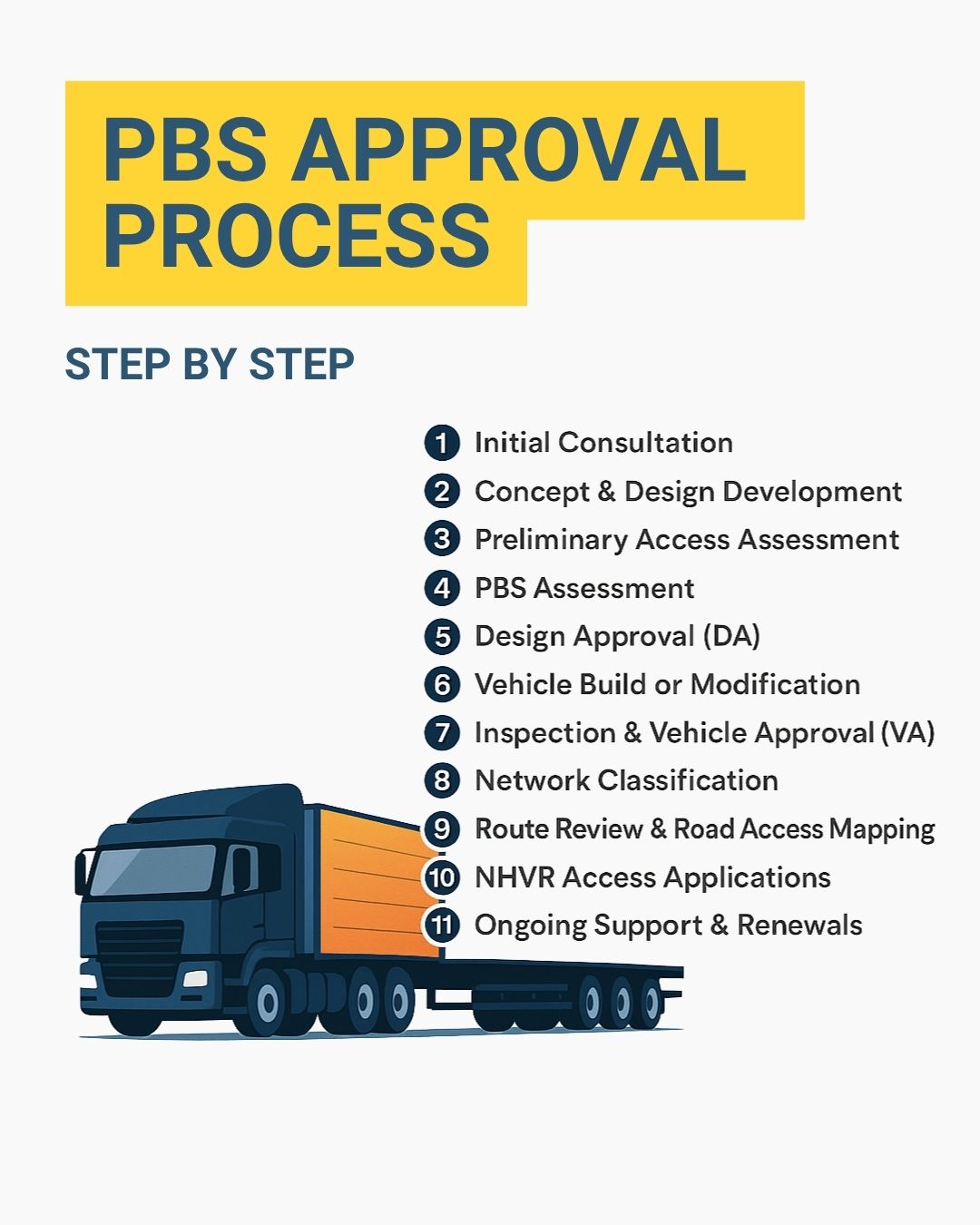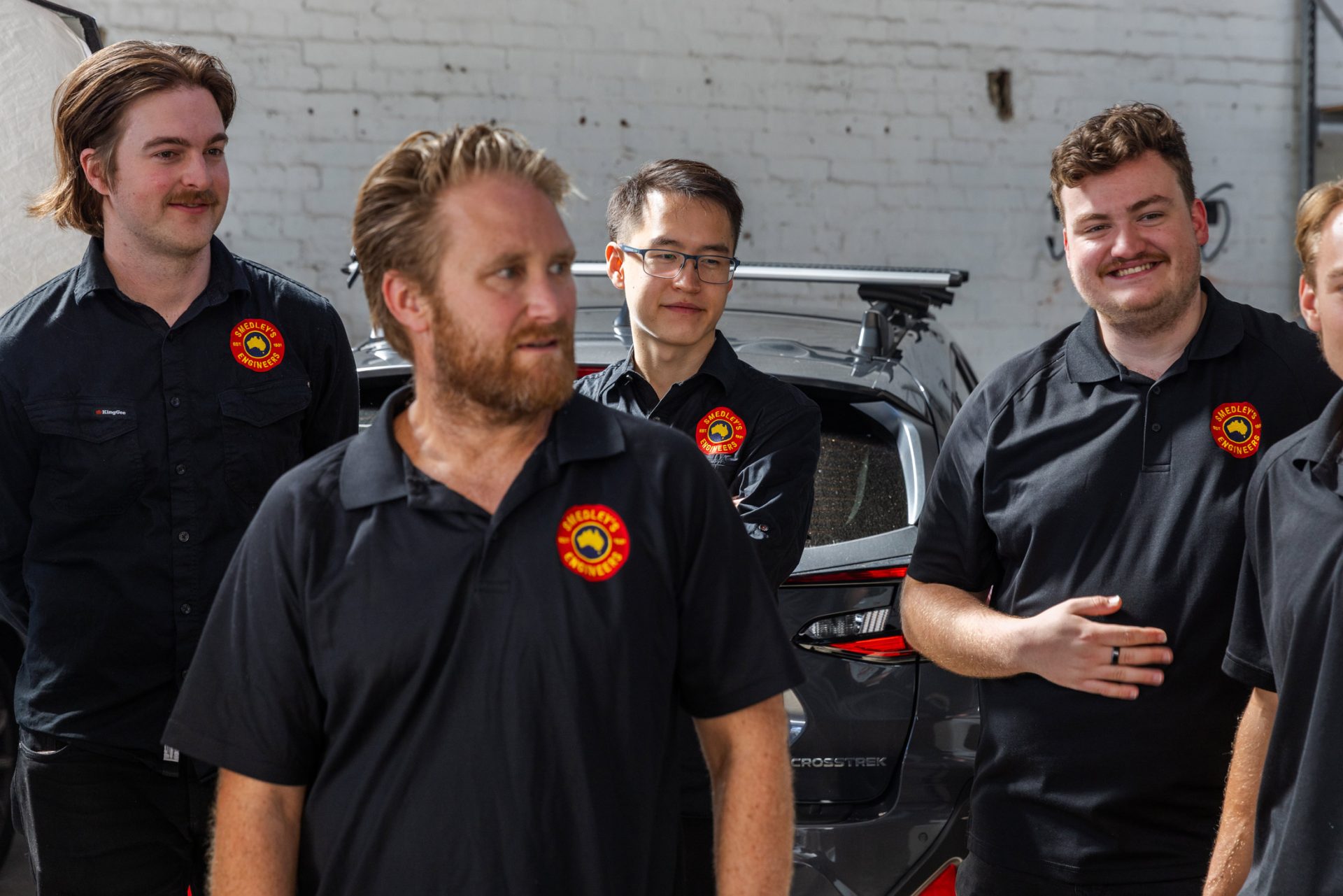If you’re operating heavy vehicles in Australia, you’ve likely heard of the PBS Approval Process — but understanding exactly how to get your vehicle approved can be a different story.
From complex route access rules to specific design requirements, the process can feel overwhelming. For fleet managers and logistics operators, this uncertainty can mean costly delays, missed productivity gains, and vehicles sitting idle when they should be on the road.
At Smedley’s Engineers, we’ve supported thousands of PBS approvals across Australia. Our in-house team handles everything from concept design and assessment through to certification and access applications, helping businesses navigate the PBS process with clarity and confidence.
Whether you’re building a new combination, modifying an existing setup, or simply exploring whether PBS is right for your fleet, this guide will walk you through every step, and answer the most common questions we hear from operators like you.
Let’s break down what PBS is, why it matters, and how to get approved.
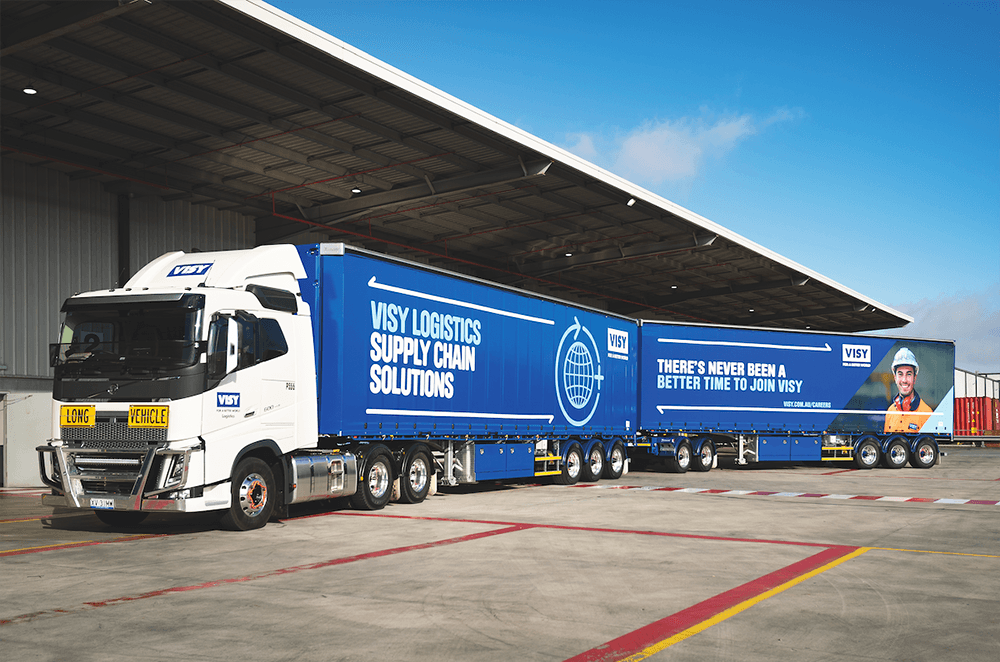
What Is PBS?
The Performance Based Standards (PBS) scheme is a national framework overseen by the National Heavy Vehicle Regulator (NHVR). Rather than focusing strictly on vehicle size or weight limits, PBS assesses how a vehicle performs, and whether it’s safe, efficient, and suitable for Australia’s road networks.
PBS vehicles are tested against 16 safety standards and four infrastructure standards. These standards evaluate things like turning ability, braking distance, acceleration, and stability to ensure each vehicle is a match for the roads it operates on.
The goal? To allow innovative and higher-performing vehicles to do more, without compromising safety or infrastructure.
By designing vehicles to meet performance targets instead of rigid rules, PBS gives operators flexibility to carry more payload, reduce trip numbers, improve fuel efficiency, and minimise environmental impact. In many cases, PBS-approved combinations can carry up to 60% more than conventional vehicles on the same task.
For businesses looking to increase productivity while staying compliant, PBS offers a smarter path forward.
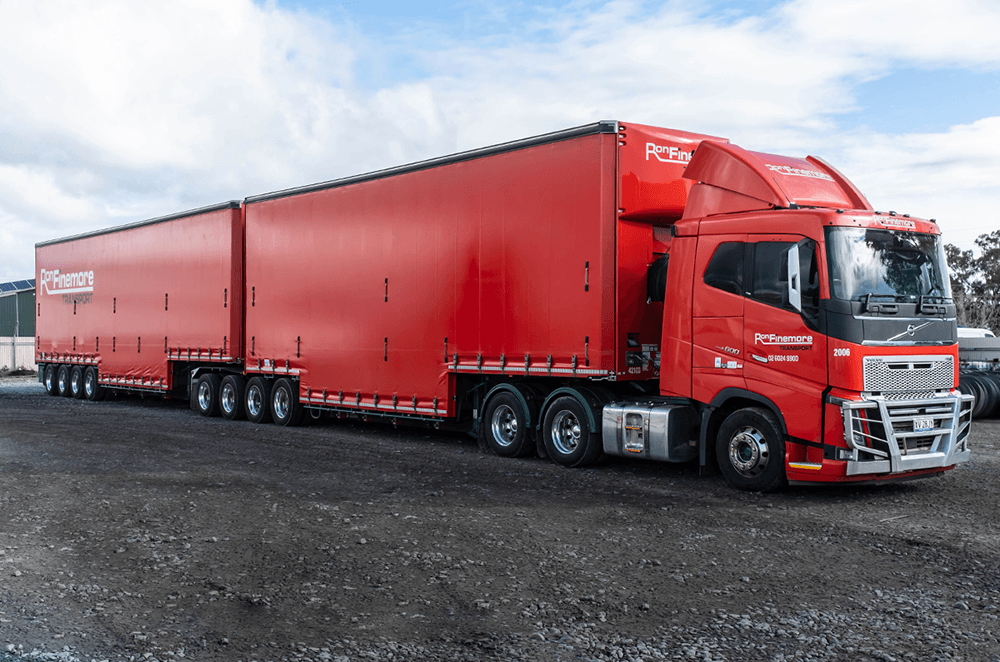
Why Choose PBS?
At its core, the PBS scheme is about matching the right vehicle to the right task — and doing it in a way that improves safety, performance, and profitability across the board.
For fleet operators, this means the ability to carry more with fewer trips.
In fact, PBS-approved vehicles can often transport 20–60% more payload, depending on the combination and network access. That’s a major boost in productivity and a direct impact on your bottom line.
PBS also unlocks access to more efficient routes. With the right approvals, vehicles can bypass bottlenecks, reduce turnaround times, and improve delivery schedules, all without compromising road safety or infrastructure.
In addition to efficiency, PBS vehicles are often more fuel-efficient and environmentally sustainable. Fewer trips mean fewer emissions, lower fuel use, and a smaller carbon footprint.
When done right, PBS can be a game changer, especially in competitive sectors like freight, logistics, agriculture, and construction. But the key is getting the approval process right from the start.
That’s where Smedley’s Engineers comes in: a single point of contact to guide you through every stage of the PBS journey.
The PBS Approval Process: Step by Step
Getting PBS approval might seem complicated but with the right guidance, it’s a structured and highly achievable process. At Smedley’s Engineers, we manage every step in-house to keep things efficient, compliant, and clear.
Here’s how it works:
Step 1: Initial Consultation
Every PBS journey starts with a conversation. We assess your current operations, goals, and existing equipment to determine whether PBS is the right fit. From there, we outline a tailored approval pathway focused on maximising payload, productivity, and long-term profitability
Book your initial consultation here.
Step 2: Concept & Design Development
Once your objectives are clear, we move into concept design. Our team develops preliminary vehicle layouts and technical drawings that consider axle loads, swept path envelopes, turning circles, and other key factors. These designs are developed with PBS compliance in mind — but before progressing too far, we assess access implications early.
Step 3: Preliminary Access Assessment (In Principle Access)
At this stage, we may submit an In Principle (IP) Access Application to road managers. This optional but highly recommended step helps identify whether your proposed combination is likely to meet access requirements — before investing in vehicle build or purchase. IP Access allows operators to eliminate problematic combinations early and avoid costly surprises due to network restrictions or bridge limitations.
Step 4: PBS Assessment
With the concept finalised and access considered, we conduct detailed computer simulations to test your proposed combination against 16 PBS safety standards and 4 infrastructure standards. This includes metrics like low-speed turning, high-speed stability, braking, acceleration, and pavement wear.
Step 5: Design Approval (DA)
We submit the PBS assessment results to the NHVR for Design Approval. Once issued, this confirms your vehicle design meets all PBS standards and is approved for build or modification.
Step 6: Vehicle Build or Modification
With Design Approval in place, your vehicle is either built to spec or modified accordingly. Our engineers can collaborate with your manufacturer to ensure all compliance requirements are met during production.
Step 7: Inspection & Vehicle Approval (VA)
After the build is complete, a certified Smedley’s engineer conducts a physical inspection. If the vehicle matches the approved design, we issue a PBS Vehicle Approval (VA) – your official certification to operate, subject to road access.
Step 8: Network Classification
We assess your approved vehicle’s dimensions, axle groupings, and turning performance to determine which PBS Network Level it falls under (Levels 1–4) or whether it qualifies for General Access. This classification sets the foundation for mapping eligible routes.
Step 9: Route Review & Road Access Mapping
Using NHVR tools and our in-house expertise, we identify the most efficient and accessible routes available. We assess potential restrictions, low bridges, and structure limits to determine if additional approvals are required. If an earlier In Principle Access Application was submitted and aligns with the final design, it can help fast-track approvals at this stage.
Step 10: NHVR Access Applications
Once the optimal routes are confirmed and your Vehicle Approval is in hand, we manage the NHVR access application process. This includes preparing supporting documents, lodging applications via the NHVR Portal, and liaising with road managers. Even if changes were made post-IP application, we ensure your final access request is handled quickly and thoroughly.
Step 11: Ongoing Support & Renewals
PBS compliance doesn’t end with approval. Most access permits need renewal every 2–3 years, and any changes to routes or configurations may require updated applications. We offer full ongoing support – from managing renewals and new permit requests to training your internal team on access management.
PBS Approval Process FAQs
Navigating the PBS approval process for the first time?
Here are answers to the questions we hear most often from fleet managers and vehicle operators.
What do I need for PBS?
To become PBS compliant, your vehicle needs to meet specific design and performance requirements based on its task, tyres, load, and intended route. This process involves consultation, design, assessment, inspection, and route access applications.
Smedley’s Engineers provides all services in-house, from initial consultation through to final approval so you can get the job done faster and with less guesswork.
Am I carrying enough?
Maybe not. Through the PBS process, we can assess whether you’re under utilising your fleet. In many cases, operators discover they can carry significantly more, meaning fewer trips, better turnaround times, and higher profit margins.
How much does it cost?
Costs vary depending on your vehicle, setup, and access needs. As a general guide:
- New Vehicle Approval (VA): $2,000 – $10,000
- Route Permits (per application): ~ $330 – $340
- Permit Renewals (every 2–3 years): ~$300 (if nothing changes)
For accurate pricing, it’s best to speak directly with a PBS consultant at Smedley’s.
Can Smedley’s handle the entire PBS process in-house?
Yes! All engineering, assessment, inspection, certification, and access services are handled by our in-house team of PBS experts. No outsourcing, no delays.
Can I use my existing equipment?
Possibly. Whether existing equipment can be reused depends on its age, specifications, and whether it meets PBS performance requirements. Our team will assess your setup and advise on whether it can be certified or modified for use in a PBS combination.
Will I need to buy new equipment?
In some cases, yes — but not always. You might be able to modify your current equipment or combine it with new components to meet the standards. Our team will help determine the most cost-effective path forward.
Are LPVs (Load Proportioning Valves) still accepted?
Yes, in some circumstances. While ABS or EBS is preferred, LPVs can still be approved for use on older vehicles where modern systems aren’t compatible. This may change in the future, so speak with a consultant for up-to-date guidance.
Can I run any tires I want?
PBS no longer requires specific tyre brands or models to be listed for approval. Instead, tyres must meet the required size, load rating, and configuration (single or dual) for each axle group. This gives operators more flexibility. It’s still important to avoid low-quality or under-rated tyres, which can affect compliance and performance. Our team will advise on suitable options for your combination to ensure full PBS compliance.
How long does PBS approval take?
- Simple combinations: ~2 weeks
- Complex combinations: Up to 12 weeks
Timelines depend on your design, access needs, and permit complexity.
Will there be ongoing costs?
Yes, but they’re minimal. Permit renewals are required every 2–3 years. If your access changes or expands, additional applications may be needed. We also offer training if you’d prefer to manage permits internally.
What do I need to be compliant long-term?
Long-term compliance means maintaining your approved specifications, renewing access permits on time, and ensuring your route approvals remain current. Some PBS combinations may also require telematics monitoring or Smart OBM (On-Board Mass) systems as a condition of access. With Smedley’s, we can manage these requirements for you — or provide the tools and training to handle them in-house.
Why Work with Smedley’s Engineers?
When it comes to the PBS approval process, experience matters. With over 16,000 PBS and ADR certifications delivered, Smedley’s Engineers is one of Australia’s most trusted partners for heavy vehicle compliance.
We’ve worked with major transport operators across VIC, NSW and QLD – including VISY Logistics, Nolan’s Interstate Transport, Ron Finemore Transport, and many more. Whether you’re a national fleet or a single vehicle operator, we provide tailored support backed by decades of technical knowledge.
What sets us apart?
✅ End-to-end service – from design to permits
✅ In-house PBS specialists – no outsourcing, no delays
✅ National presence – engineers located across key transport states
✅ Compliance-first mindset – ensuring safety, profitability, and peace of mind
We’re not just ticking boxes. We help you unlock real operational improvements, higher payloads, smarter routes, and more efficient vehicles. All without cutting corners.
Our mission is simple: take the complexity out of PBS and help you move forward with confidence.
Ready to Get PBS Approved?
If you’re looking to improve payload, reduce costs, and streamline your fleet’s compliance, we’re ready to help.
Speak to a PBS specialist at Smedley’s Engineers and get the support you need from concept to certification and beyond.
📍 Australia-wide service
📞 (03) 9421 6697
📩 enquiries@smedleys.co
